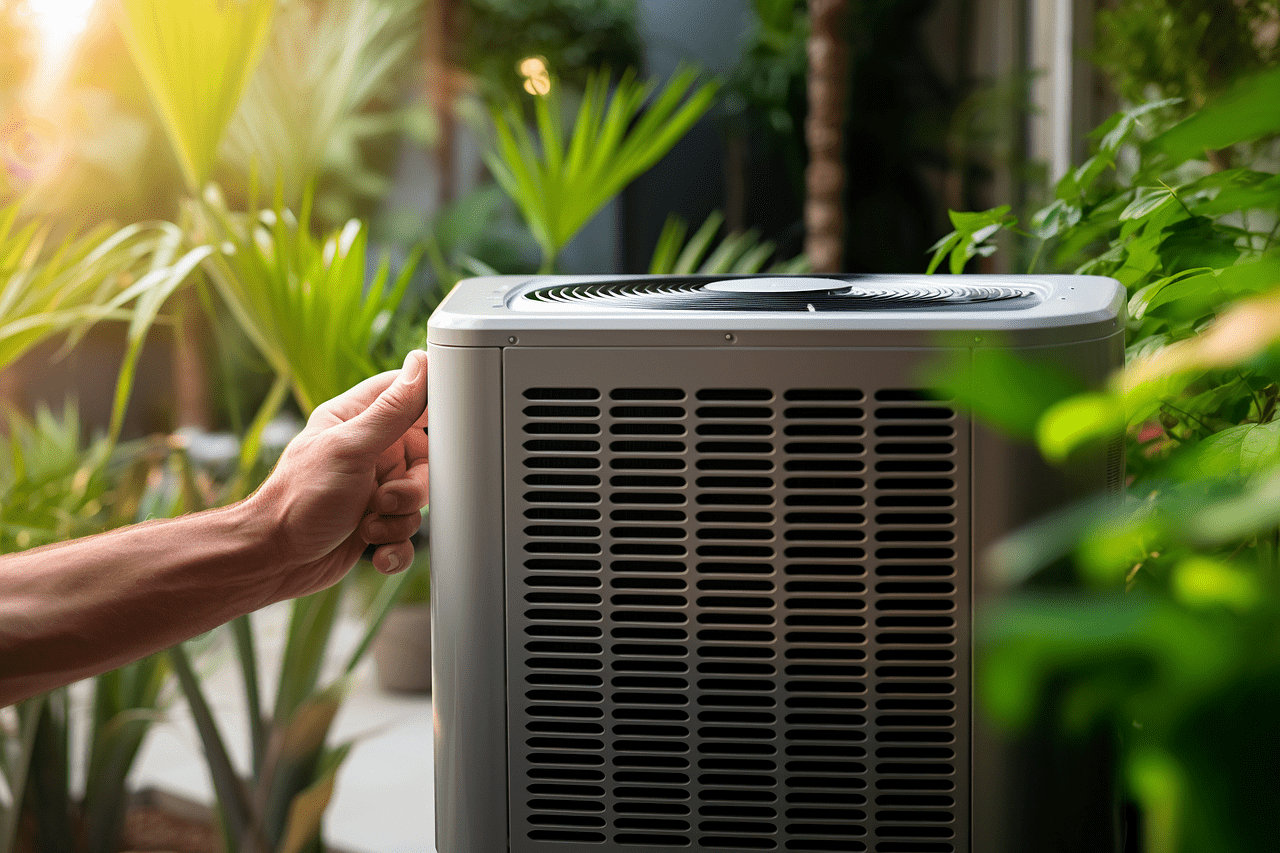
How to make your heating eco-friendly and sustainable
The issue of sustainability is not only at the heart of major economic and social debates but is also highly relevant in everyday life. From innovative means of transportation to people's consumption habits, the commitment to making planet Earth greener also involves the heating systems of our homes. Let's find out together how.
How to heat your home in an eco-friendly way?
Choosing eco-friendly heating systems contributes to the reduction of pollutants and fossil fuel consumption, while also promoting energy savings. These are fundamental steps to mitigate the environmental impact of our heating systems.
The ongoing search for alternatives to traditional gas systems has led to the development of technology applied in this sector, yielding significant results.
Today, heating homes in an eco-friendly manner is possible thanks to:
- next-generation boilers;
- systems that operate through renewable sources;
- home automation for increasingly precise and reliable management.
Sustainability depends on seemingly simple daily actions. Smart devices such as thermostatic valves and intelligent thermostats greatly help prevent heat loss. These not only affect end-of-month bills but also energy consumption, which, in turn, leads to higher carbon dioxide emissions.
Smart valves and thermostats allow users to remotely program heat delivery using applications installed on smartphones. They are connected to the internet for continuous and immediate monitoring.
This way, users can intervene in starting and stopping the heating system based on their commitments and unexpected events. If the system was set to turn on for the return from work at a certain time, and instead, there's an unexpected delay, the start of heat delivery can be conveniently postponed.
- The Multizone functionality helps to set different temperatures in each room, according to their usage.
- The sensors in the thermostatic valves detect an open window, temporarily interrupting heat distribution from the radiator in that area of the house.
- The algorithms with which these devices are designed learn and process the habits of the occupants for autonomous heating management, which can always be intervened upon from anywhere and at any time.
- The temperature sensors in the valves and thermostat indicate whether the set temperature is too high or too low and more or less eco-friendly.
It is therefore evident how home automation applied to heating is an easy path towards sustainability.
What is the most eco-friendly heating system?
The market offers various solutions to identify a more sustainable and less polluting heating system. These are all alternatives to the traditional gas boiler, which for a long time has been the most common heat generator in our society.
The condensing boiler is the first evolution of the traditional boiler that helps to contain emissions in the environment. It differs from the classic one because it is able to recover energy both for heating and for the production of domestic hot water from combustion fumes.
Heat pump systems are considered among the most reliable and efficient in terms of sustainability for the near future. A heat pump can transform a renewable source such as outdoor air or water into heat for radiators and domestic hot water and switches to cooling mode in the summer season.
Among the renewable sources, we find solar energy that powers photovoltaic systems. Solar panels are not only capable of producing electricity but also heat: water is heated thanks to thermal collectors that absorb sunlight and its heat.
Underfloor heating is one of the alternative heating systems to traditional radiators: it is widespread especially in new homes and is designed to optimise energy savings.
Pellet stoves can also be included in the group of the most ecological systems because they are powered by a material obtained from wood processing waste.
Pellets are also used for biomass boilers, which have alternative energy sources as a strength: from residues of agricultural and forestry activities to waste from the food industry.
So, the possibilities are there to leave an increasingly green ecological footprint.

How to choose the most ecological and low-cost heating system?
When evaluating which system to install in your home, you should take into account several aspects that include economic elements, heat generators and different heating systems.
Among the heat generators to consider for an ecological and economical system, we find:
- condensing boilers;
- heat pumps, which will increasingly play a leading role;
- biomass boilers;
- photovoltaic systems.
Which one to choose? Some initial steps are necessary.
- If we consider a biomass boiler, it should be taken into account that it requires adequate space for material storage.
- Regarding pellet stoves, they are useful for heating small spaces, but they are not particularly efficient for larger ones.
- It is also necessary to pay close attention to the quality of the raw material and ensure, as in the case of pellets, that it has not been chemically treated: it would compromise its ecological characteristics.
- Heat pumps require a financial effort, but it should be considered that there are state grants available for low-impact environmental generators.
- In the case of solar panels, the user must consider the geographical area in which they live and the weather conditions during the winter season.
As for the systems, two solutions that may seem obvious but remain an excellent choice are those with radiators or underfloor heating.
- New, efficient radiators properly maintained and cleaned, heat more with lower consumption.
- Solutions such as underfloor heating require a substantial initial investment, and maintenance or repair costs can be high, especially if the installation was not carried out properly and with due consideration.
- On the other hand, they facilitate a more uniform distribution of heat, contributing to energy efficiency, and do not raise dust, improving indoor air quality.
In this context, home automation tools such as thermostats and smart thermostatic valves prove to be extremely flexible and effective because they are designed to be compatible with the final choice.
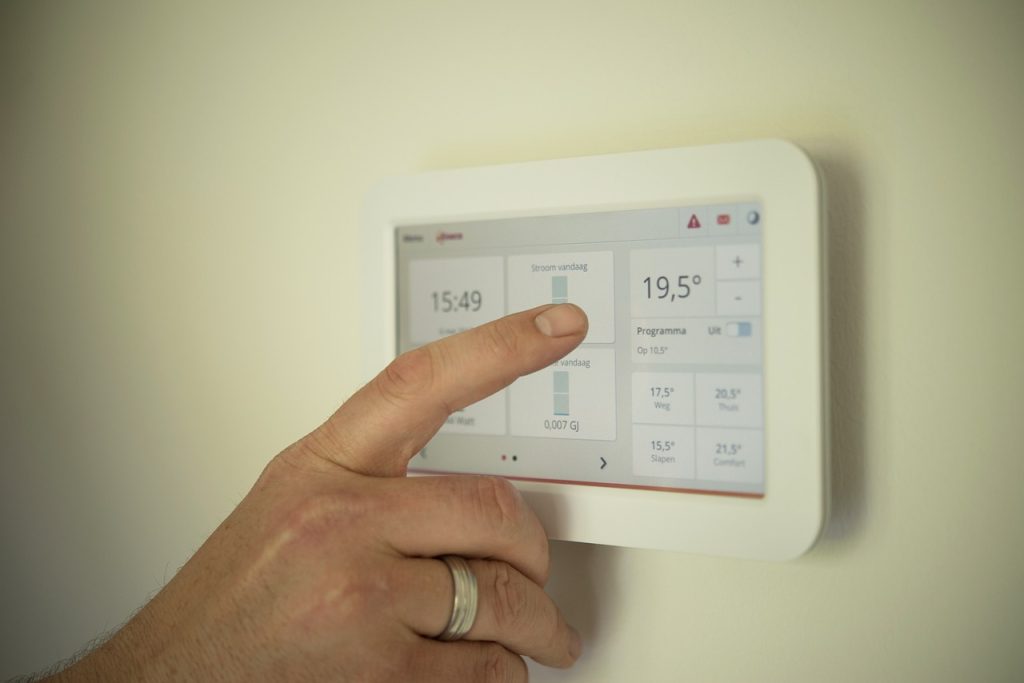
How to heat the house without polluting?
The combination of ecological systems and intelligent devices for home temperature management are the two fundamental elements to heat homes without leaving a mark on the natural environment.
Correct and timely maintenance of systems is equally important, despite being often underestimated. A serviced boiler subjected to checks is more efficient and safer: consumption is reduced and optimised.
It can quickly reach the ideal temperature to ensure the right thermal comfort, which becomes even easier to maintain with the help of home automation for consistent pleasure and a sustainable lifestyle.
Other Articles
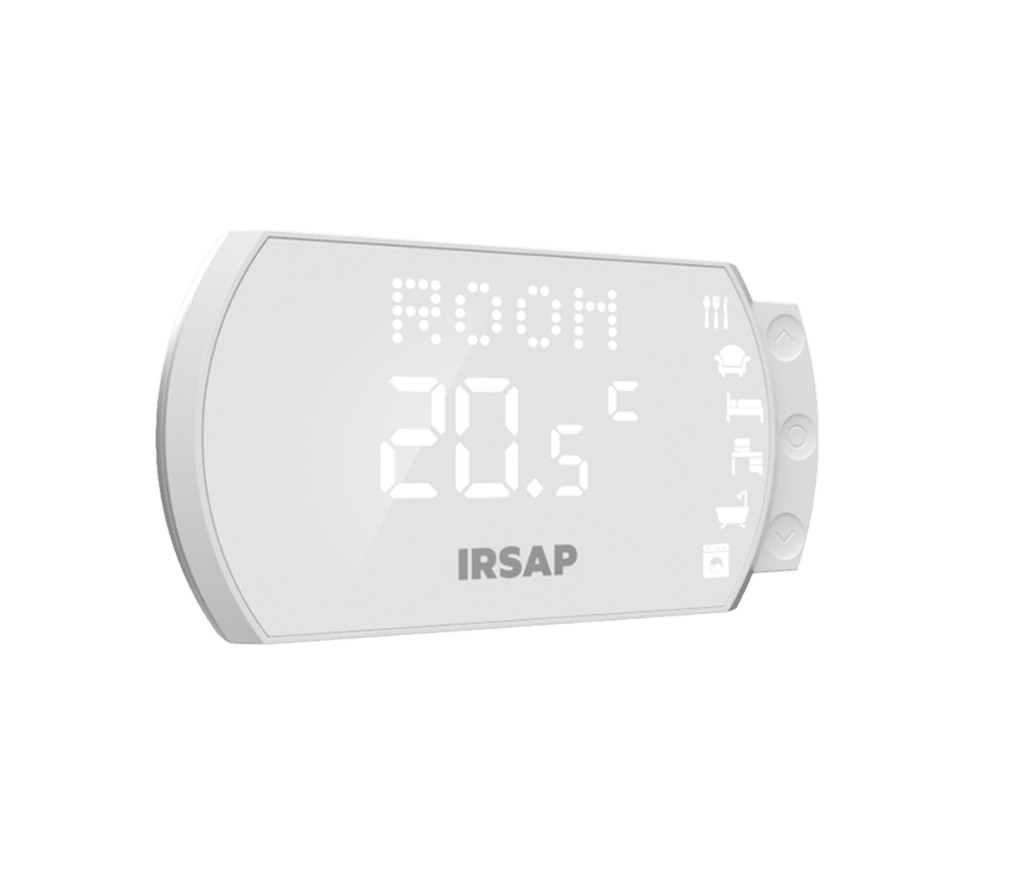
Smart Thermostat
The Smart Thermostat allows you to precisely set and measure the temperature of the room in which it is installed. Thanks to its advanced functionalities it also allows you to control humidity and air quality.
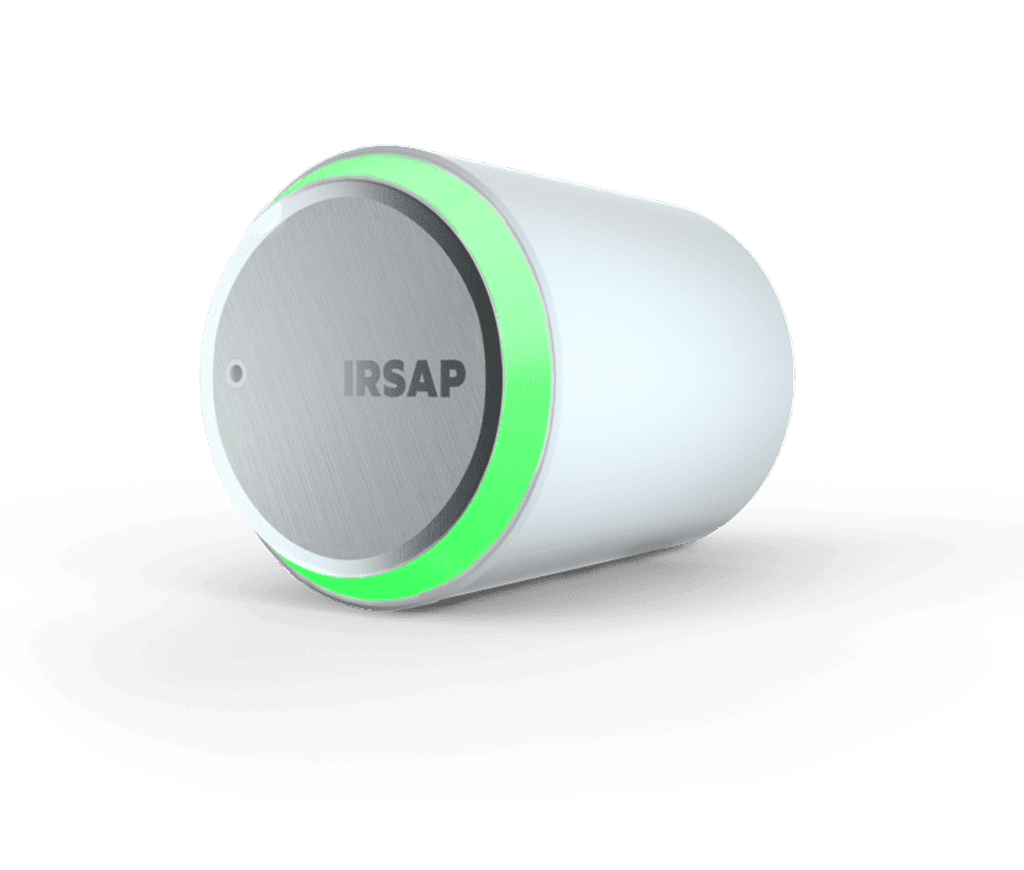
Smart Valve
With IRSAP NOW Smart Valves you control the temperature intelligently from wherever and whenver you want via smartphone. Our wireless thermostatic valves are compatible with all radiator brands and leading hydraulic valve manufacturers.
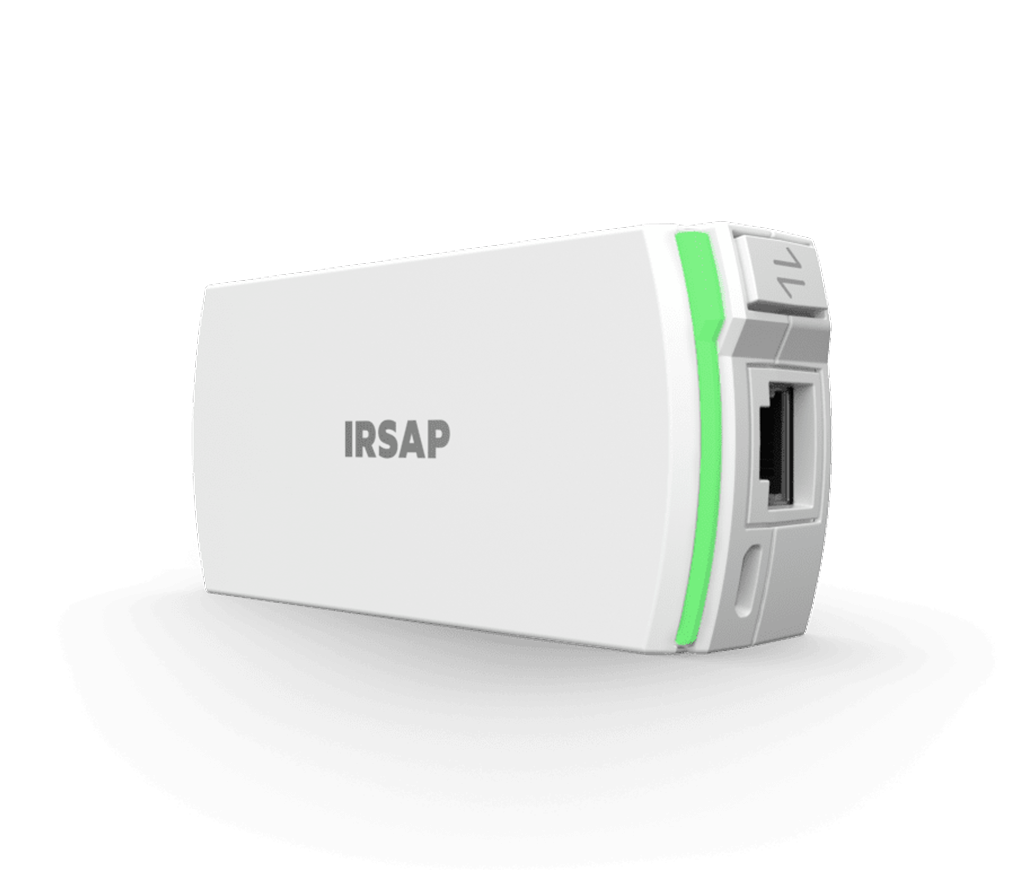
Connection Unit & Repeater
The Connection Unit is connected to your home router and is indispensable for controlling all the other devices in the system from wherever and whenever you want directly from your smartphone.






